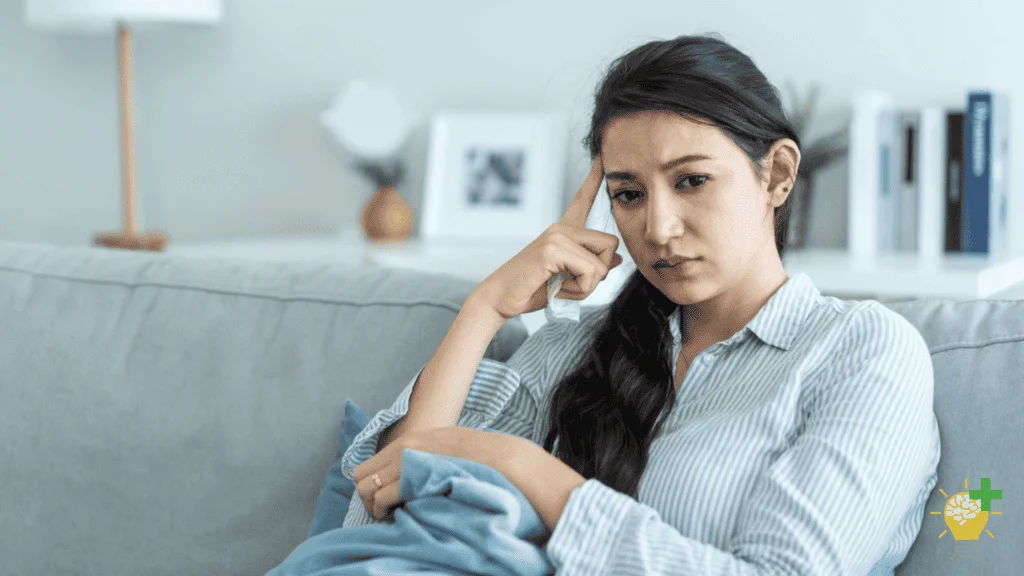The extreme fear about everyday situations or tasks resulting from debilitating anxiety can leave you feeling frustrated, confused, and lonely. And it gets worse when no one seems to get you, especially your loved ones.
As stressful and seemingly hopeless as the condition may seem for anyone in that shoe, there are many ways to stay on top of the problem and live a happy life. Keep reading to learn about what causes debilitating anxiety, as well as a handful of science-backed solutions.
Why Do We Experience Debilitating Anxiety?
Anxiety symptoms are essentially signs of hyperactivity in certain brain regions, specifically the brain’s emotional processing center.
Research suggests that people with anxiety may have heightened activity in their emotional processing center, also called the brain’s limbic system.
Under normal circumstances, the various structures or regions of the brain that make up the limbic system are responsible for maintaining balance in the activities in those regions. These activities include things like memory, emotions, and motivation.
Once there is an imbalance in these activities, we experience symptoms of anxiety and mood disorders.
The amygdala is one of the main structures in the limbic system responsible for processing emotions like fear and aggression and triggering the fight or flight response.
If you have a generalized anxiety disorder, your amygdala is usually in overdrive ― it assumes everyday situations threaten you, so it activates other parts systems in the body to keep you safe, even when you are not in any real danger.
This hyperactivity and exaggerated fear response make it difficult to relax or carry on your normal day-to-day activities.
What Causes Anxiety?

There are several factors that can cause anxiety disorders. However, scientists have narrowed these down to two major causes, including:
- Environmental factors: Losing a loved one, growing up in an abusive home, or experiencing violence in a relationship can cause anxiety. Also, people who experience prolonged illness, uncertainty, financial stress, or other traumatic experiences have a higher chance of developing a severe anxiety disorder.
- Genetic or hereditary factors: It is entirely possible to get anxiety disorder from your parents or someone in your lineage.
In addition to these, there are a few other known factors that increase the risk of developing an anxiety disorder. These include:
- Substance abuse
- Personality
- Brain chemistry
- Medical conditions
Symptoms of Debilitating Anxiety

It’s possible to have subconscious or unconscious anxiety without realizing it. And sometimes, people chalk off the symptoms to work-related stress, especially those with a hectic work schedule.
If you’re unsure about having severe anxiety, here are common physical, behavioral, and emotional symptoms to watch out for.
Physical Symptoms
- Sweating for no logical reason
- Running out of breath without doing any physical activity
- Feeling restless, extremely tired, or constant fatigue
- Racing heart or rapid heartbeat
- Tremors, muscle twitching, or muscle tension
- Unexplained digestive problems like stomach upset, diarrhea, and nausea
- Frequent headaches or feeling lightheaded
- Feeling the need to urinate frequently (even when the bladder is relatively empty), sudden uncontrollable urge to urinate, difficulty fully emptying the bladder
- Insomnia ― having trouble falling asleep, staying asleep, or returning to sleep after waking up at night
Behavioral Symptoms
- Constantly looking out for impending danger
- Repeatedly checking locks and switches or doing other compulsive actions
- Constant self-doubt and seeking reassurance
- Easily frustrated or irritable, especially in fearful situations
- Avoiding social situations or situations that can cause fear
Emotional Symptoms
- Catastrophizing (assuming the worst possible outcome)
- Persistent, unnecessary, and excessive worry
- Constantly thinking something bad will happen
- Overgeneralizing (hastily drawing conclusions based on limited evidence)
- Thinking in black and white (no gray areas) or all-or-nothing thinking (overly simplistic or rigid view without a middle ground)
How to Manage Debilitating Anxiety

Reading the long list of anxiety symptoms can feel overwhelming, but the good news is that the condition is completely treatable.
You can recover or at least manage your symptoms with one or more of the following at-home techniques.
Physical Exercise
When crippling anxiety strikes, the fight or flight response fills your body with stress chemicals like adrenaline. Doing exercise can burn off some of those chemicals so you don’t stay hyperactive for no reason.
Also, exercise can help you relax and feel calmer as it increases blood flow to your muscles.
Consider doing a few different workouts 3 to 5 times weekly to help manage your anxiety. Ask your doctor for advice if you’re unsure what exercise best suits your current fitness level.
Mindfulness Practices
Mindfulness practices like meditation train your mind to focus on the present moment, which is completely opposite to where your focus is when experiencing a panic attack or anxiety attack.
You calm your body’s stress response during meditation because it reduces rumination and worrisome thoughts ― two common symptoms of anxiety.
While meditation or any other mindfulness practice may not cure your anxiety, it can relieve stress and reduce the intensity of anxiety symptoms.
Grounding Exercises
Getting lost in your thoughts? That’s a common sign of anxiety disorder, and it makes it difficult to focus on the present.
As the name suggests, grounding keeps you grounded in the here and now. Doing any type of grounding exercise keeps you connected to your immediate surroundings and what’s happening in your body. This way, you are not lost in worrisome thoughts and anxious feelings.
When you do a grounding exercise, you use all your senses to connect to the world around you. Here are two effective grounding exercises you might want to try:
- Visualization: Use your imagination to create a vivid picture of a peaceful place with yourself smack in the middle, experiencing the calmness in that scenario.
- Five things exercise: Whenever you feel anxiety creeping in, look at five things, touch four things, listen to three things, smell two things, and taste one thing.
Breathing Exercises
Try to notice your breathing pattern the next time you catch yourself feeling anxious. You are likely taking shallow breaths and inadvertently perpetuating the anxiety symptoms.
Your brain and body need oxygen to function properly, so make it a point to practice some deliberate breathing exercises a few times throughout your day. Take slow, deep breaths to provide enough oxygen to your body and brain.
Some breathing exercises that can reduce anxiety include:
- Diaphragmatic breathing
- 4-7-8 breathing
- Alternate nostril breathing
- Pursed lip breathing
- Box breathing
Journaling
Journaling is another effective tool for managing anxiety. The simple act of writing down your thoughts can help you let go of pent-up worry, even if not completely.
If you struggle with being assertive or constantly ruminate, consider making journaling a part of your routine. Besides giving you a private place to pour out your emotions, writing your thoughts can provide perspective, so you can see things in a better light.
Additionally, journaling is a great way to identify coping strategies that have worked for you in the past.
Want to learn specific journaling methods that can reduce your anxiety symptoms? Check out this straightforward guide.
Other Simple Ways to Reduce Anxiety
In addition to the above techniques, you can improve your mental health using these simple but highly effective methods.
Learning About Anxiety
Ignorance is not your friend when it comes to mental health problems like anxiety and depression. As much as possible, learn everything there is to know about your specific type of anxiety.
Of course, knowledge alone may not directly treat or reduce the crippling feeling of anxiety. Yet, educating yourself on the various things that can trigger your anxiety can help you manage the problem better.
Besides, knowledge is power, and it can help you feel more at ease if you know exactly what is wrong with you and steps to minimize its negative effects.
Being Assertive
Direct and honest communication is often difficult for people with anxiety disorders. That’s because they generally don’t want to rock the boat or stir up conflict. In many cases, a person with anxiety will be passive or fail to speak up, and this attitude keeps the cycle of anxiety going.
If this is you, it’s time to overcome low self-esteem and start being assertive ― learn to honestly communicate your opinions, feelings, wants and needs. The more you speak up, the more confident you become.
Treating Anxiety With Therapy and Medication
Besides complementary treatments, therapy is highly effective in alleviating mental health issues, including anxiety and depression.
Depending on the specific anxiety you have, you may receive any of the following therapies:
- Exposure therapy
- Cognitive behavioral therapy (CBT)
- Dialectical behavioral therapy (DBT)
- Eye movement desensitization and reprocessing (EMDR)
- Acceptance and commitment therapy (ACT)
Also, certain medications can reduce symptoms of anxiety and anxious feelings, but be sure to speak with your doctor before using any prescription medicine or even herbal remedies.
That said, keep in mind that it is usually better to use medications to treat debilitating anxiety in the short term. You want to go easy on medicines and focus more on therapy and complementary anxiety treatment options.




